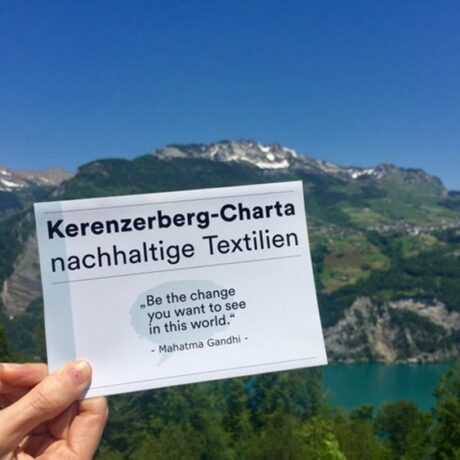The session began by recalling the Rana Plaza incident in Bangladesh and the involvement of UNI Global Union in ensuring human rights and worker safety is respected. TheBangladesh Accord is a legally binding agreement signed by over 190 apparel companies around the world. Retailers commit to ensure safety in garment factories, proper work conditions and adequate salaries for workers. There are 1531 factories under the accord that need to be inspected and remediated. To date, 1288 factories have been inspected and the majority are still in progress with their remediation plan.
The UNI Global Union group, the Clean Clothes Campaign and Fashion Revolution Suisse are among the organizations that have a presence in Switzerland and who are actively campaigning for change in the international supply chains of the fashion industry. The Berne Declaration is a not-for-profit organization who has launched a Living Wage campaign to provide greater transparency for consumers, as even within the European Union garment workers live under poor conditions. Next time you go shopping, download the ‘Fair Fashion?’ mobile app to check over 140 fashion brands on their commitment to worker empowerment, support for union activities, among others.
Much remains to be done to clean up the supply chain of the garment industry. We heard from Angela Paulillo on the environmental and social commitment at Kering. At Kering, sustainability is key in creating value, and not just social compliance[1]. Regarding the supply chain, there are three key areas to improve the social and environmental impact: product, packaging and transportation. Kering evaluates their key suppliers and is collaborating with them so they adhere by the company’s code of conduct by 2016. PUMA, one of the many brands under the Kering group, has also signed the Bangladesh Accord and is working with suppliers in Asia to improve the safety of the factories. For more information, click here to download the sustainability targets report.
We also discussed some of the challenges inherent to the fashion industry which make compliance and monitoring difficult to control. The supply chain is extremely complex, as fashion trends change from season to season. After all, suppliers are rarely one-stop service shops. A brand might need to work with a facility in India for their embroidery skills, but work with a supplier in Turkey for leather garments. Although not impossible, it will require a massive upgrade of the supply chain and business model so that companies can really control how and where everything is made, from the yarn sourcing, to the buttons and the dyes used for the fabrics.
April 24, 2016 will be the three year commemoration of the Rana Plaza building collapse. How much progress has been made since? The full remediation of the factories under the Bangladesh Accord is happening much slower than desired, one notorious case being H&M who has failed to address the safety issues of its factories in Bangladesh. As consumers, we should continue pressuring fashion brands to compensate the victims and make financing of these remediation projects a priority. Get involved now by signing the Clean Clothes Campaign petition and following Fashion Revolution Suisse on Facebook!
We also questioned our responsibility as buyers, and the measures we can take as individuals to diminish our consumption. After all, the demand for cheap and trendy clothes is one of the main drivers behind the appalling conditions in factories in developing countries. Are we willing to pay the true cost of clothing? Would it be more effective if luxury brands led the way as they are the trend-setters that these fast fashion brands seek to imitate?
After some time exploring these issues, we broke into groups and conducted an exercise to generate an action plan for next year’s Fashion Revolution day. We have already started to follow up on some of these ideas in our group forum. If you are a BSL student, don’t hesitate to contact Dr. Marina Curran to get involved!
Author: Carolina Chanis, MBA Participant 2015







